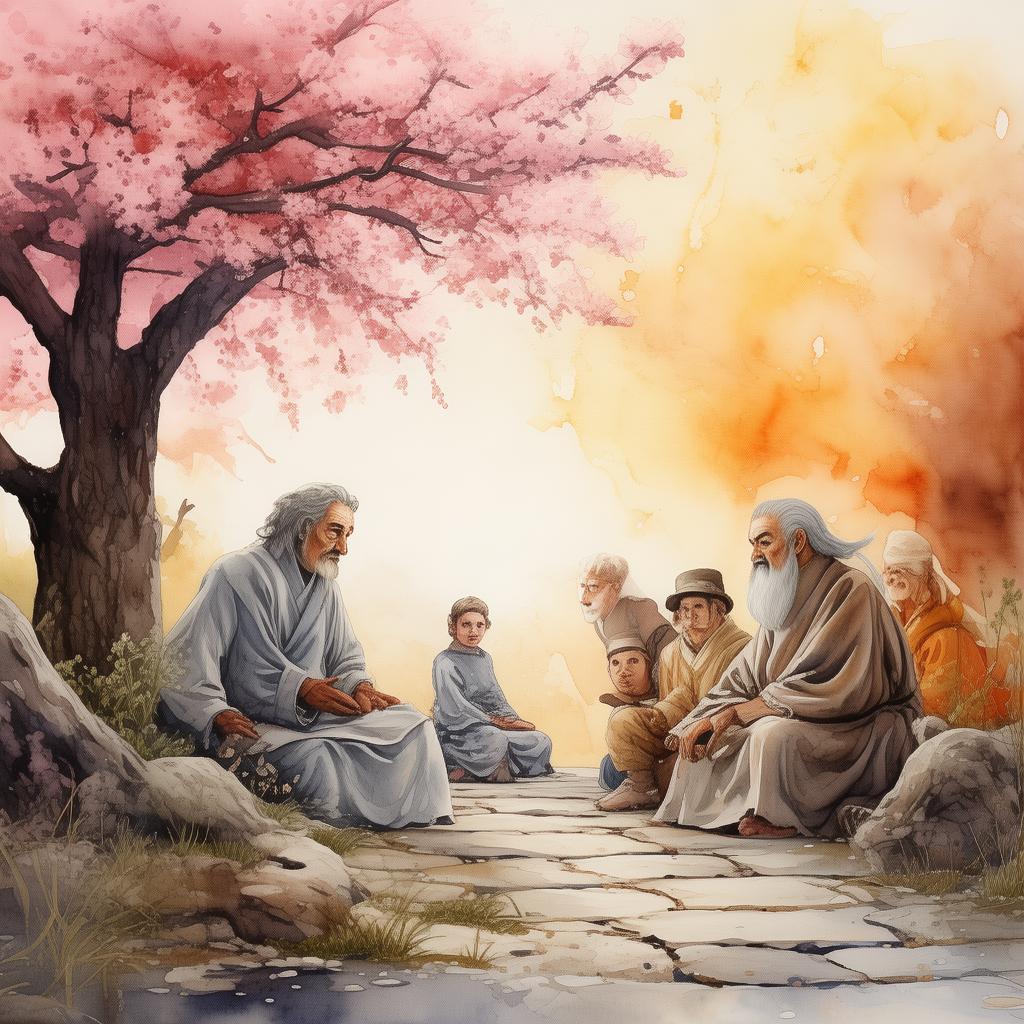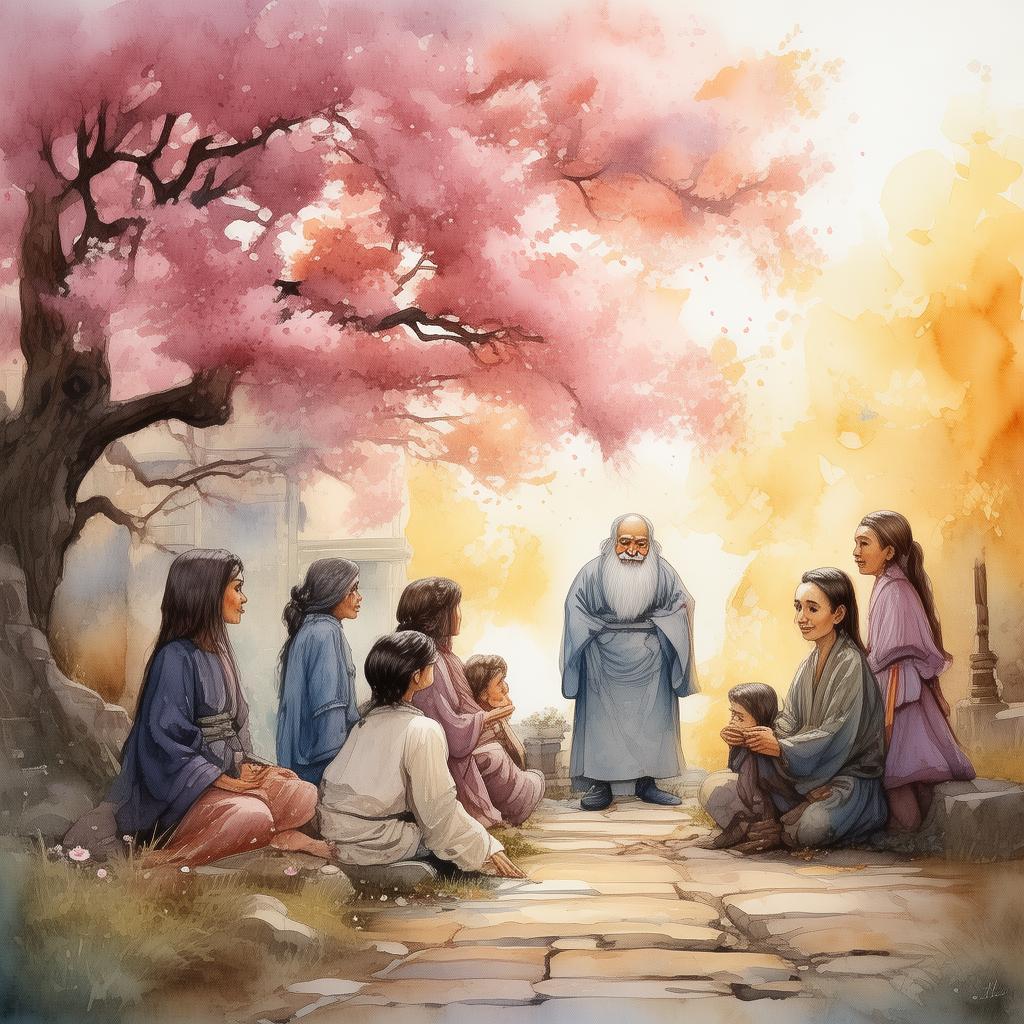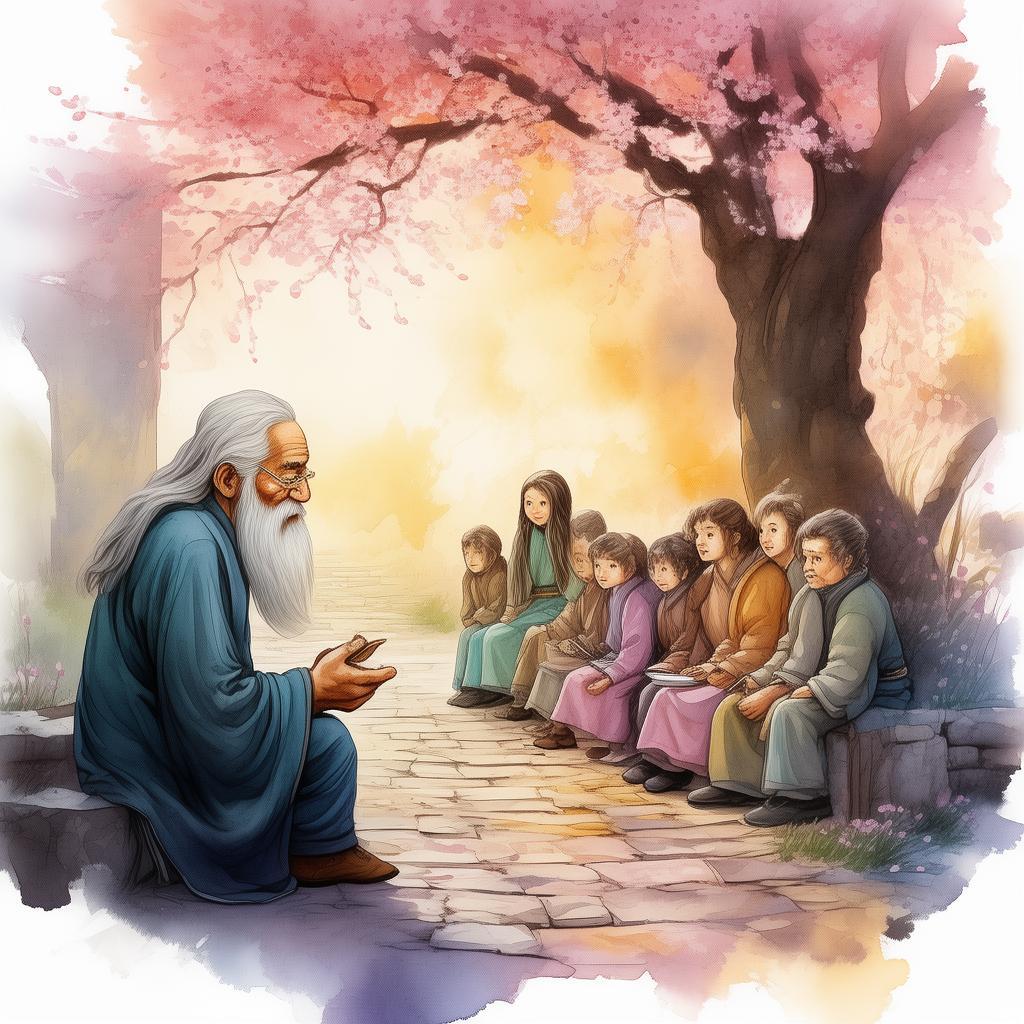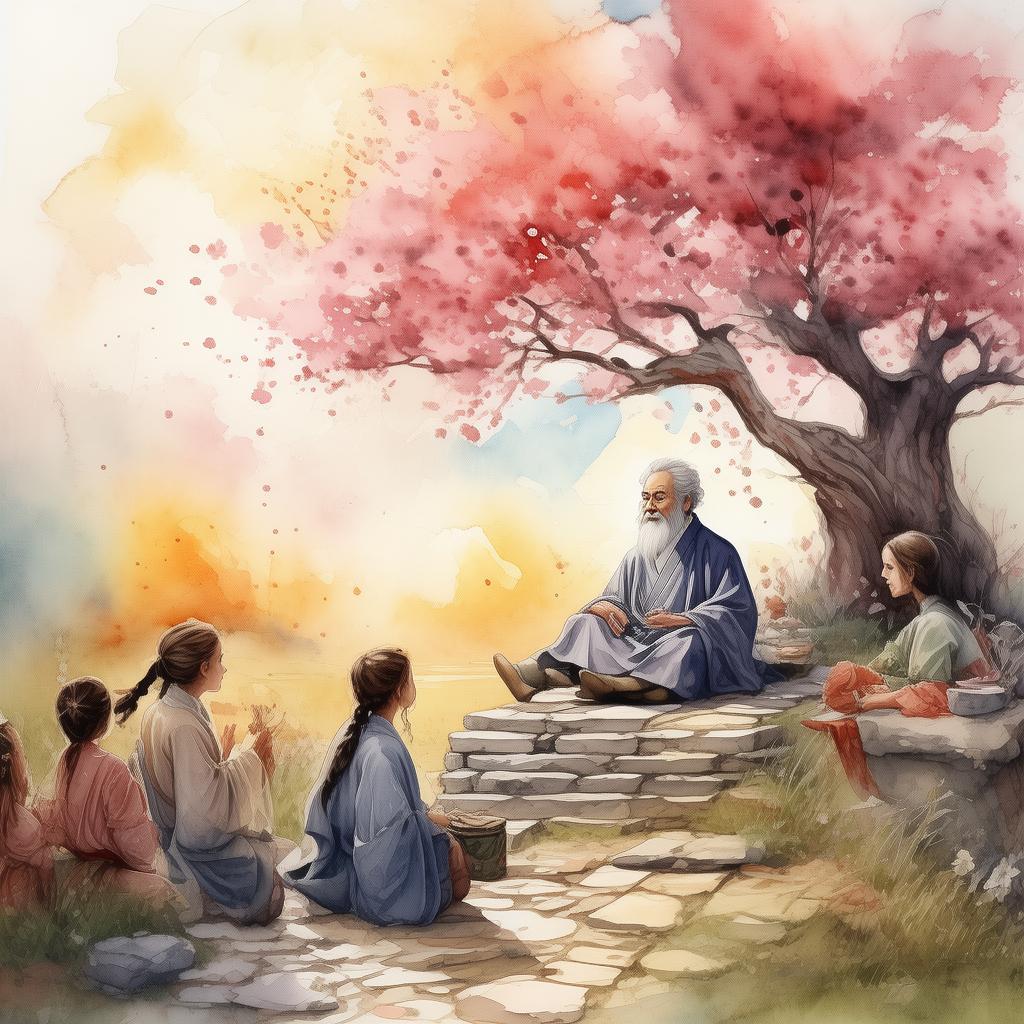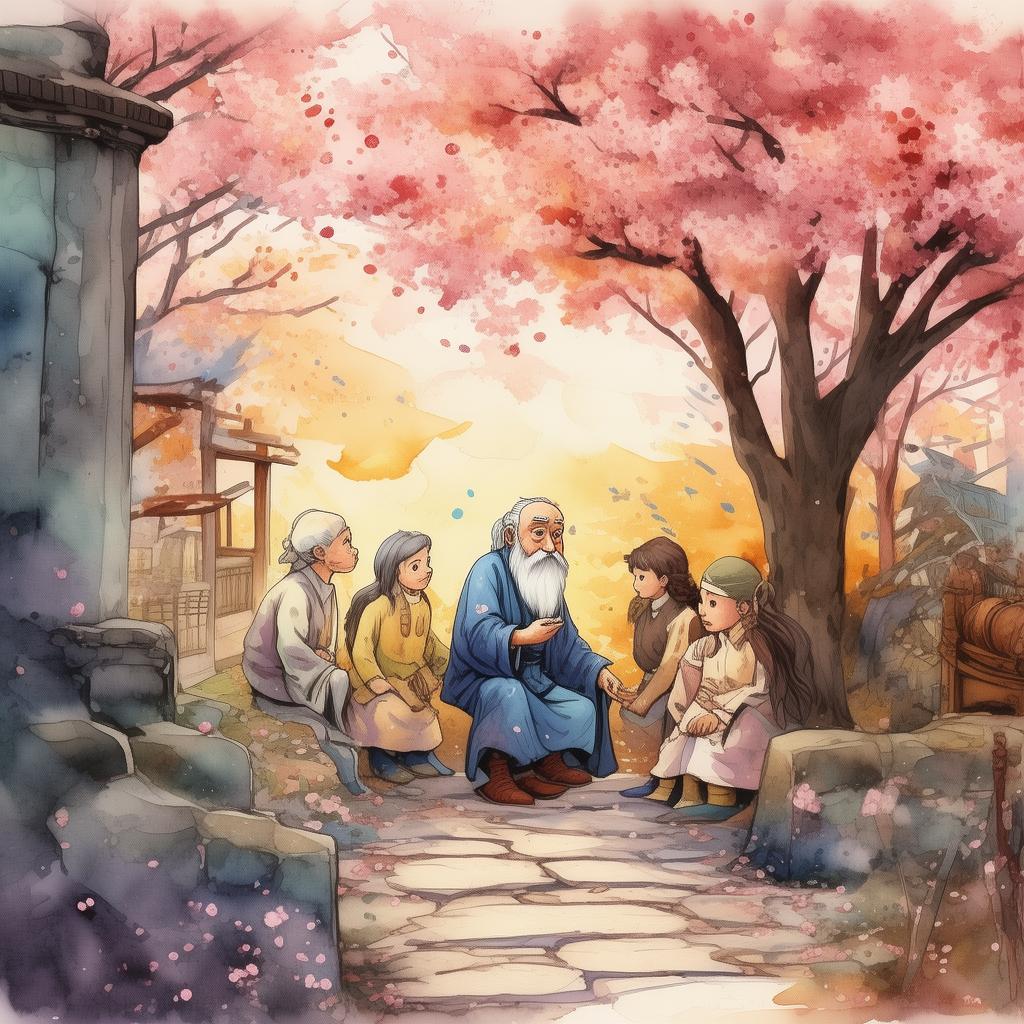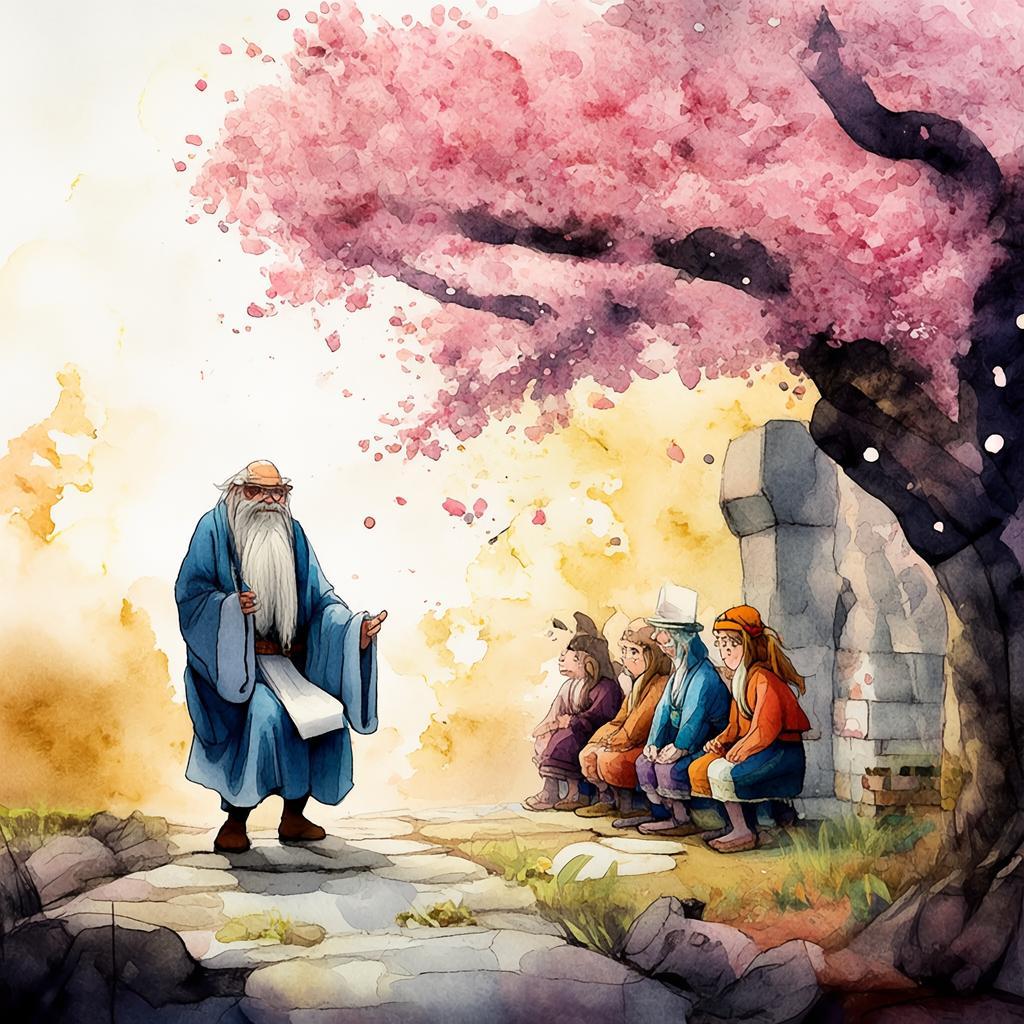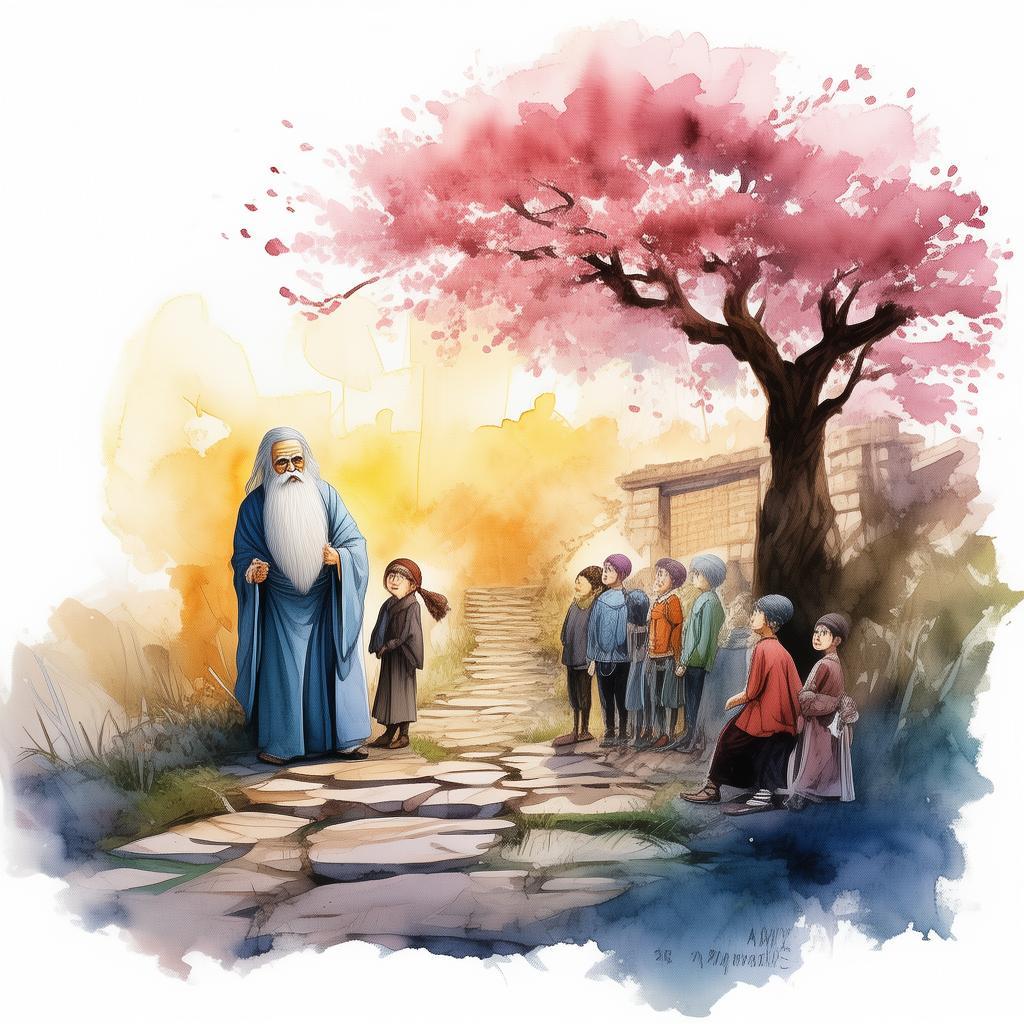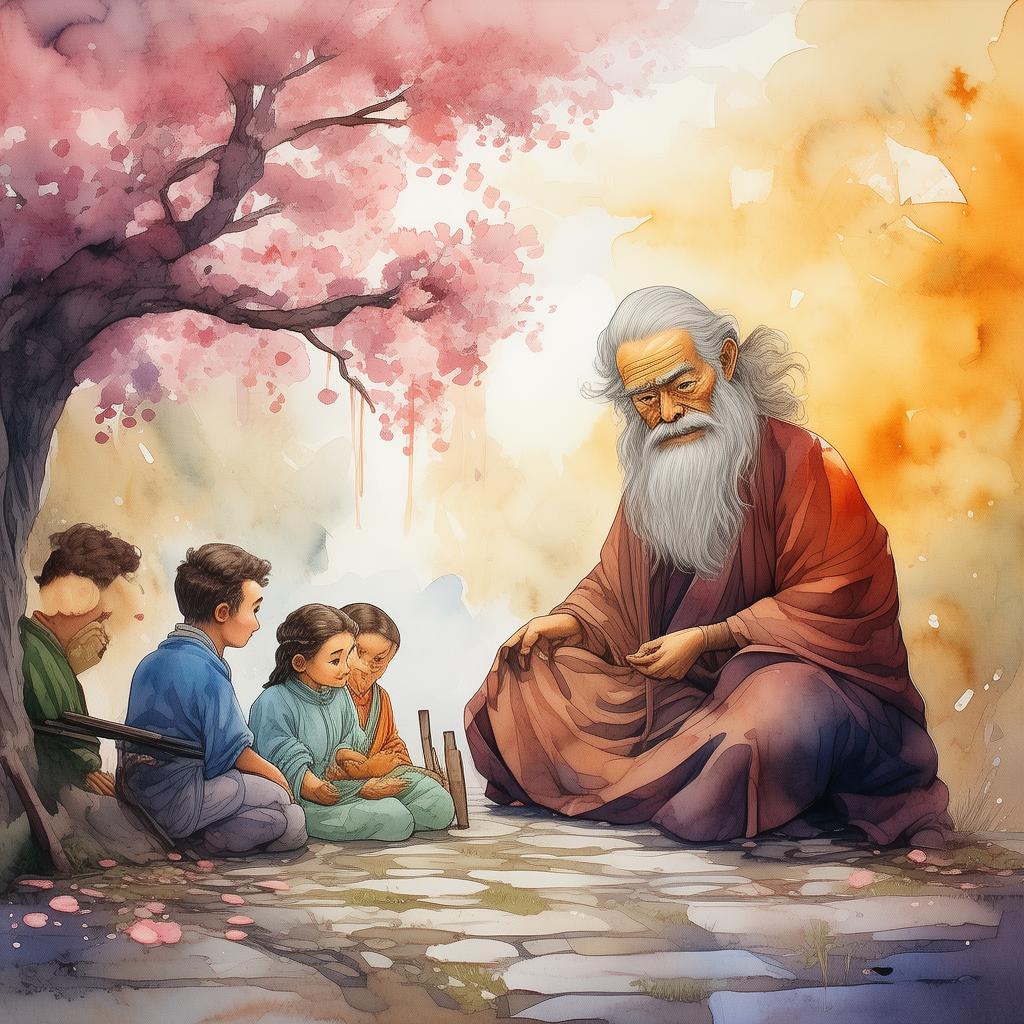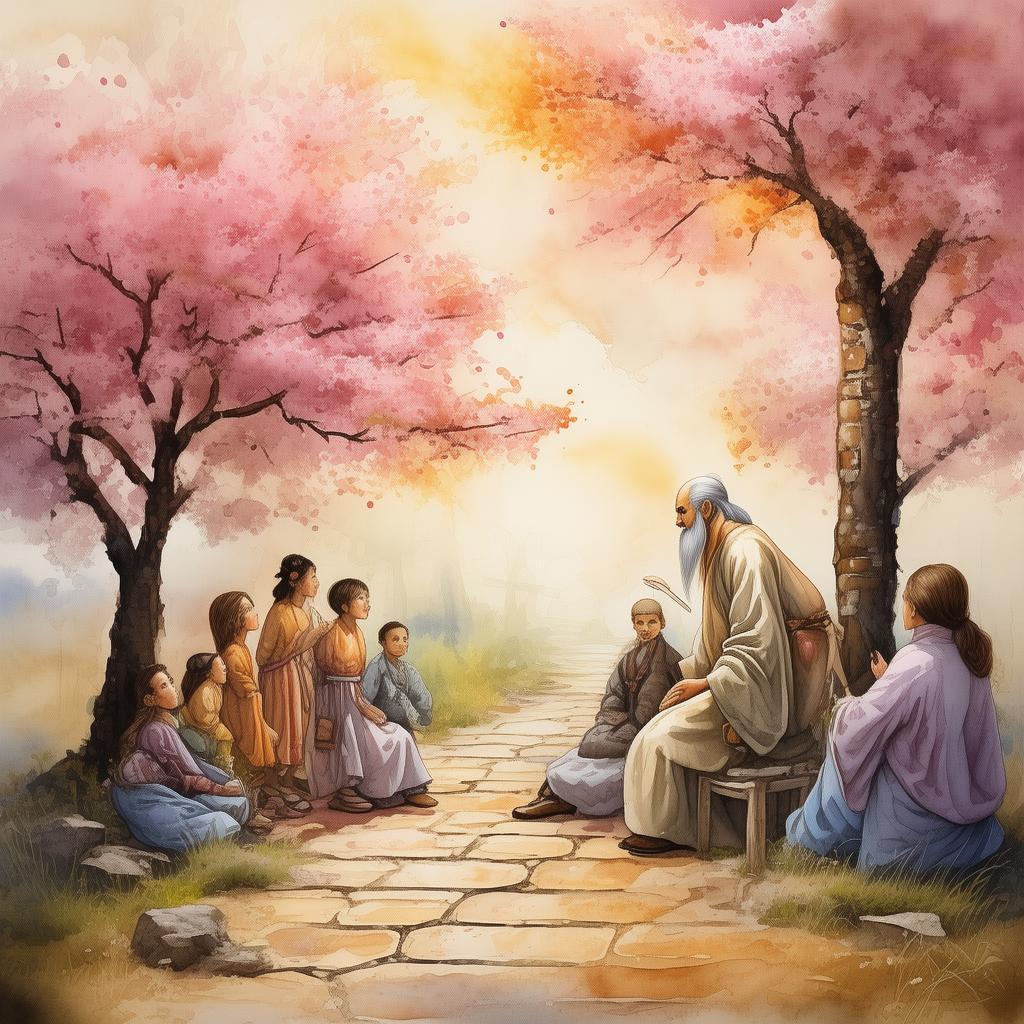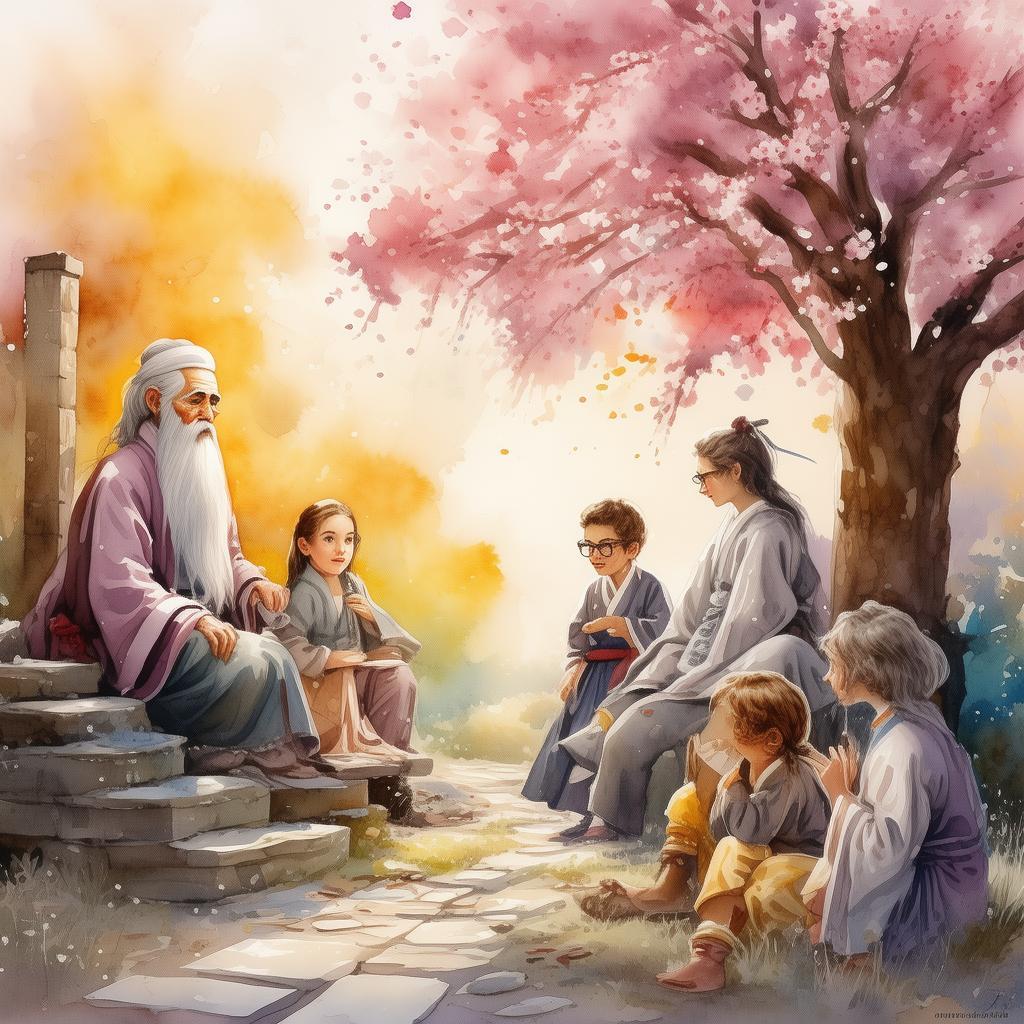The Echo of an Ancient Promise
In the tranquil village of Longxing, nestled amidst rolling hills and whispering rivers, there lived a young man named Ming. Ming was no ordinary villager; he was a descendant of a lineage that had been steeped in the wisdom of ancient China. His ancestors, known for their eloquence and wisdom, had left behind a legacy of idioms and proverbs that had been passed down through generations. Ming, however, felt a void within him, a void that could only be filled by understanding the true meaning behind these idioms.
The village, a place of simple joys and sorrows, was the setting for Ming's quest. The idiom that had sparked his journey was "Echoes from the Past," a phrase that held the promise of rediscovery and enlightenment. Ming had always been fascinated by the stories his grandmother told of their ancestors, tales of bravery, love, and loss. But there was one idiom that intrigued him the most: "An Idiomatic Journey to Rediscovery."
Ming set out on his quest with a map that his grandmother had given him, a map that was said to lead to the very roots of their family tree. The journey was not to be an easy one; it would take him through the winding paths of history, from the bustling markets of ancient Chang'an to the serene temples of Leshan. Along the way, Ming encountered a cast of characters, each with their own tale to tell and lessons to impart.
His first stop was the ancient city of Chang'an, where he met an old scholar named Li. Li, with a long beard and eyes that held the wisdom of ages, listened intently to Ming's story. "The idiom 'Echoes from the Past' speaks of the echoes of our ancestors' voices," Li said, his voice resonating with the weight of history. "It is not just a journey through time but a journey through the heart, where we find our true selves."
Ming's next stop was a bustling market, where he met a young girl selling herbs. Her name was Mei, and she had a story of her own. Mei's ancestors had been healers, and she had learned the art of healing from them. She taught Ming about the idiom "Pain is temporary, but the reward is forever," which she had learned from her grandmother. Mei's words were a stark reminder of the sacrifices made by those who came before.
As Ming continued his journey, he encountered more stories and idioms that illuminated his path. He learned about "The Tortoise and the Hare," a tale of perseverance, and "The Foolish Old Man Who Removed the Mountains," a story of determination. Each idiom he encountered brought him closer to understanding the essence of his heritage.
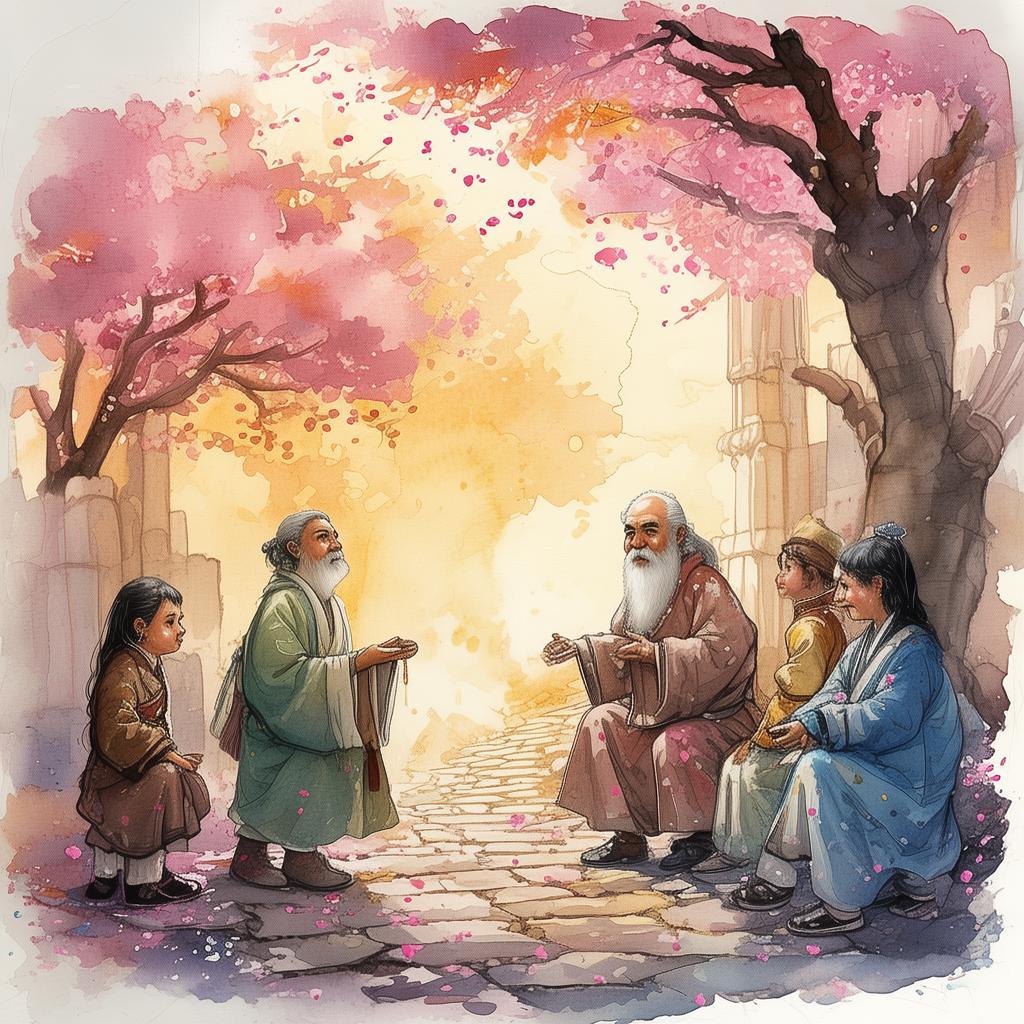
One day, Ming found himself in a remote mountain village, where he met an old woman who lived alone. Her name was Feng, and she had spent her life studying the ancient texts of her ancestors. Feng explained to Ming that the idiom "Echoes from the Past" was not just about the past but about the present and the future. "The echoes are the lessons we learn from our ancestors, the wisdom we carry within us, and the legacy we pass on to the next generation."
It was in this village that Ming realized that his journey was not just about understanding the idioms, but about understanding himself. He reflected on the lessons he had learned and the experiences he had had, and he began to see the echoes of his ancestors in his own life.
As Ming made his way back to Longxing, he felt a profound sense of connection to his past and to his ancestors. He understood that the idioms were not just words but windows into the souls of those who came before him. The journey had not only brought him closer to his roots but had also given him a new perspective on life.
Upon his return, Ming shared his experiences with his family and the village. He spoke of the pain and the joy, the challenges and the triumphs. The village gathered around him, listening intently as he recounted his journey. Ming realized that the idioms were more than just tales; they were tools for living, a way to navigate the complexities of life with grace and wisdom.
In the end, Ming's journey was not just about rediscovery; it was about self-discovery. He had found the echo of his ancestors in his own heart and had learned that the true meaning of "Echoes from the Past" was the echo of our own souls, resonating through time.
As the sun set over Longxing, casting a golden hue over the village, Ming stood on the hilltop, looking out over the land that had once been his ancestors' home. He felt a profound sense of peace, knowing that the echoes of the past would continue to guide him and his descendants in the future.
✨ Original Statement ✨
All articles published on this website (including but not limited to text, images, videos, and other content) are original or authorized for reposting and are protected by relevant laws. Without the explicit written permission of this website, no individual or organization may copy, modify, repost, or use the content for commercial purposes.
If you need to quote or cooperate, please contact this site for authorization. We reserve the right to pursue legal responsibility for any unauthorized use.
Hereby declared.
